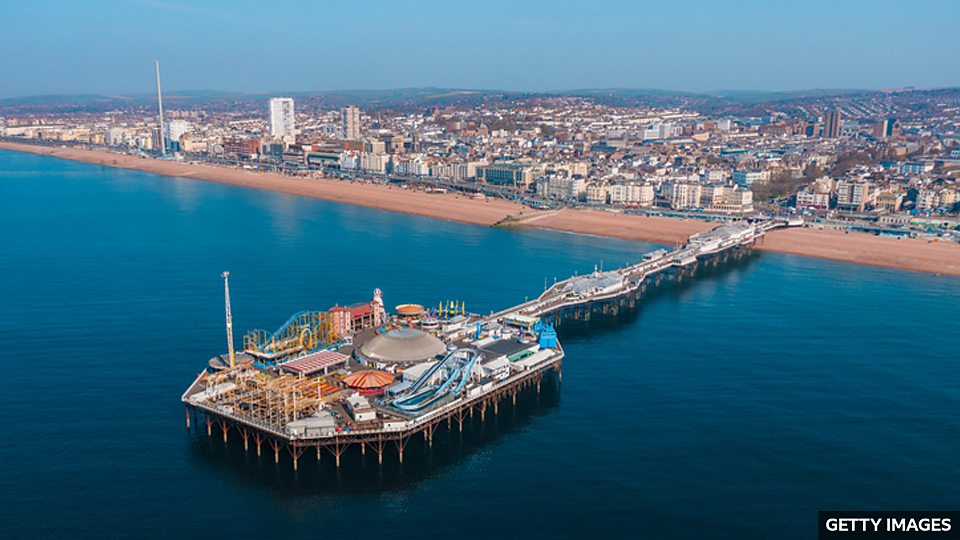内容简介
虽然名词 “wharf、quay、pier” 和 “jetty” 都可以翻译成 “码头”,但它们所指的 “码头” 类型却不同。在四个词当中,“wharf” 和 “quay” 通常指 “装卸货物或供乘客上下船使用的大型码头”,而 “pier” 和 “jetty” 多指 “用于乘客上下船的、延伸到水面上的突堤码头”。听节目,学习辨析这四个近义词的用法。
欢迎你加入并和我们一起讨论英语学习的方方面面。请通过微博 “BBC英语教学” 或邮件与我们取得联系。我们的邮箱地址是 questions.chinaelt@bbc.co.uk
文字稿
(关于台词的备注: 请注意这不是广播节目的逐字稿件。本文稿可能没有体现录制、编辑过程中对节目做出的改变。)
Beth
Hello and welcome to Question and Answer of the Week. I'm Beth.
Jiaying
And I'm Jiaying. 本期节目要回答的问题如下:
Question
I would like to know the difference between 'wharf', 'quay', 'pier' and 'jetty' as they all mean '码头' in Chinese. It's a bit confusing to distinguish between them. Thank you.
Beth
Thanks for your question! We're going to look at the meaning of each word and will give you some examples!
Jiaying
因为问题中的名词 “wharf” 和 “quay” 所指的事物比较相似,所以先来讲一讲这两个词。
Beth
Both 'wharf' and 'quay' are a safe landing area for ships and boats by the river or sea.
Jiaying
是的,“wharf” 和 “quay” 都有 “码头” 的意思。船舶会在 “wharf” 或者 “quay” 边上靠岸,两个词所指的 “码头” 都可以用来装卸货物或供乘客上下船。这两个词所指的 “码头” 通常占地面积很大。
Beth
They are usually made of stone or metal and their position is parallel to the shore. The main difference, though, is that a 'wharf' is bigger than a 'quay'. A 'wharf' usually has a series of docking areas for boats.
Jiaying
补充一点:名词 “wharf” 所指的 “码头” 可能包含多个 “quays”,这类大型码头的空间更大,因此装得下更多艘船。听两个例句。
Examples
There are three ships coming into the wharf now.
(有三艘船正在驶入码头。)
We need to wait for our boat on the quay.
(我们需要在码头等船。)
Beth
A 'wharf' often has buildings on it too, like offices and warehouses, because of its size.
Jiaying
如今,有一些旧的码头 “wharves” 被改建成了住宅区或办公楼,地名中仍保留了 “wharf” 一词。比如,伦敦的 “金丝雀码头” 就是 “Canary Wharf”。注意,“wharf, w h a r f” 的复数变化是不规则的,变成 “wharves, w h a r v e s”。
Examples
I manage the ships from a huge office on the wharf.
(我在码头的一个大办公室里管理船舶。)
At the quay, the fishermen unloaded the fish they had caught.
(在码头,渔民们把他们捕获的鱼卸了下来。)
Jiaying
讲完了名词 “wharf” 和 “quay”,现在来看看名词 “pier” 和 “jetty”。
Beth
Both a 'pier' and a 'jetty' are used by passengers to get on and off boats. They're usually wooden or concrete.
Jiaying
虽然 “pier” 和 “jetty” 也会被翻译成 “码头”,但它们特指 “从陆地延伸到湖、河、海中,用木头或混凝土等制成的突堤”。“Pier” 和 “jetty” 都从岸边延伸到水面上。
Beth
However, a 'pier' can also have entertainment, such as an arcade, or amenities, like cafes, on it.
Jiaying
是的,在 “pier” 所指的 “突堤码头,栈桥” 上,通常建有各类休闲娱乐设施。人们来这里游玩。而 “jetty” 则只是为了船舶停靠和乘客上下船而建造的。听两个例句。
Examples
On my birthday, we went to the pier to play in the arcade.
(在我生日那天,我们去码头上的休闲娱乐区打街机。)
Your boat leaves from the jetty at 11 o'clock.
(你要乘的船11点钟从突堤码头出发。)
Beth
Another difference between a 'pier' and a 'jetty' is how they are built. A 'pier' is often above the water on pillars, so the water can flow underneath easily.
Jiaying
而 “jetty” 所指的 “突堤码头” 的下面则铺设了坚固的材料,一直延伸到海床上。这种结构可以改变潮水流动的路径,从而保护海岸线免受海浪的冲蚀或免遭洪水的影响。
Examples
The sign says you mustn't swim under the pier.
(标志牌上写着你不能在栈桥下面游泳。)
The jetty protects the coastline from strong tides.
(这个突堤码头保护海岸线不受汹涌的潮水的影响。)
Jiaying
我们来总结一下:名词 “wharf” 和 “quay” 都描述 “用来装卸船只或供乘客上下船的码头”,这两个词所指的 “码头” 占地面积通常很大,但 “wharf” 通常比 “quay” 还要大。名词 “pier” 和 “jetty” 用来指 “用于乘客上下船的、延伸到水面上的突堤码头”,但 “pier” 上面可能建有各类休闲娱乐设施,而 “jetty” 则没有。
Beth
Right, Jiaying. I think we need to go now!
Jiaying
Oh, yes! We're going to the arcade on the pier tonight!
Beth
We are indeed! Remember, if you have a question about the English language you'd like to ask us, please send us an email. Our email address is: questions.chinaelt@bbc.co.uk
Jiaying
你也可以通过微博向我们提问。我们的微博账号是 “BBC英语教学”。Bye, everyone.
Beth
Bye!


 3342次下载
点击下载
3342次下载
点击下载
 2621次下载 点击下载
2621次下载 点击下载
 4734次下载 点击下载
4734次下载 点击下载
 1854次下载 点击下载
1854次下载 点击下载
 1391次下载 点击下载
1391次下载 点击下载
 1391次下载 点击下载
1391次下载 点击下载











